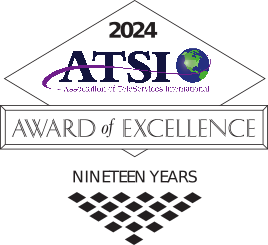The Health Insurance Portability and Accountability Act of 1996 contains several mandates, but for medical answering service companies and clients, the one that resonates most specifies that provides for the correct and confidential handling of what the Department of Health & Human Services (HHS) terms individually identifiable health information. As HHS notes, identifiable information can relate to:
* the individual’s past, present or future physical or mental health or condition,
* the provision of health care to the individual, or
* the past, present, or future payment for the provision of health care to the individual
HIPAA protected information applies to all manner of communication, whether spoken, printed or relayed digitally.
A firm foundation To be a HIPAA-compliant call center requires a firm foundation based on a comprehensive understanding of the law and a commitment to hiring, training and supervising screened call center professionals.
What to look for in a HIPAA-compliant call center Not every medical answering service responds identically to HIPAA standards. Insist on a service whose employees sign a legally binding confidentiality agreement. Beyond that * A staff based in the United States and comprised of U.S. phone operators provides the advantage of domestic information security and serves to increase patient confidence in the operator.
* A medical answering service that gives its staff continuing HIPAA training ensures that the key goals of the law remain top-of-mind when operators are interacting with patients. * A company that specializes in around-the-clock service including live operators, voicemail and email ensures you receive important information promptly.




